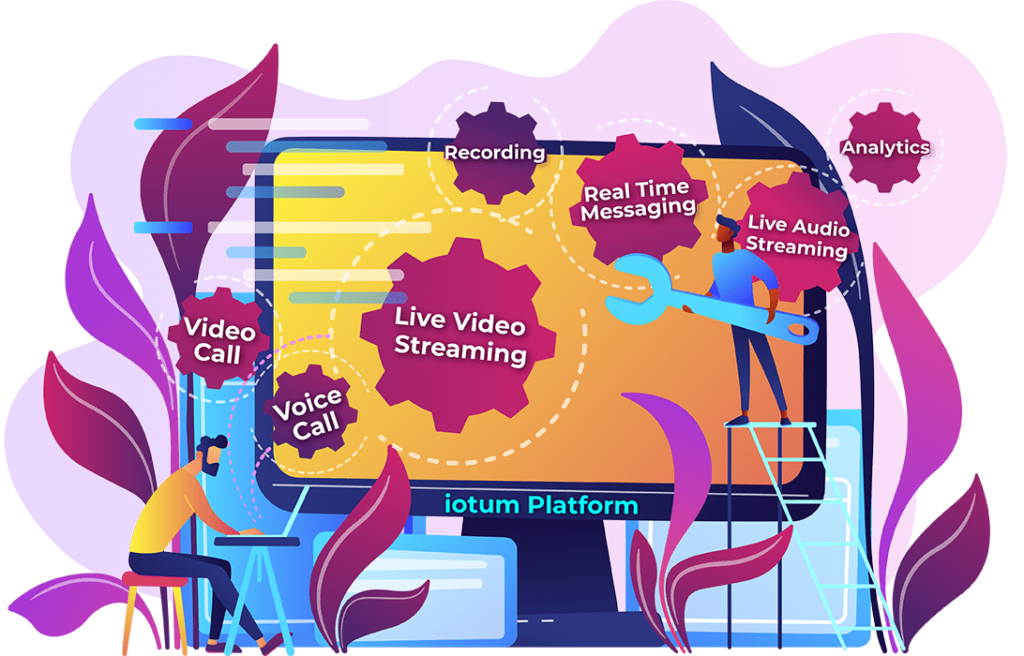 Whether you’re getting together your first or 100th podcast episode, knowing how to write a podcast script will ensure your show is a hit. Writing out your thoughts, cues, important information, interview questions and prompts in a cohesive flow sets the tone and paves the way for a podcast you can lead without worrying about dead air or lack of conversation.
Whether you’re getting together your first or 100th podcast episode, knowing how to write a podcast script will ensure your show is a hit. Writing out your thoughts, cues, important information, interview questions and prompts in a cohesive flow sets the tone and paves the way for a podcast you can lead without worrying about dead air or lack of conversation.
A podcast script also saves you time when editing after you’ve recorded. The script acts as a structure, as well as a support and reference if you find you’ve lost your way or train of thought. A script gives you peace of mind, so you know you won’t run out of things to say!
Here’s how to write a podcast script:
One of the most important things to remember while writing a podcast script is that people will be listening intently to your words. If you write the script and read it off word for word, your audience will be able to detect it. A natural, conversational rhythm is what sounds the best, otherwise, it’s too formal and comes across as contrived and rigid.
Support the direction of your script and veer away from formality by injecting your own personality. You don’t have to get caught up on the exact verbiage, the perfect word or the precise cadence. Instead, choose sayings and metaphors and throw in a joke now and again, only if it serves your purpose and enhances your message.
Choose from a few different podcast styles depending on your message and what your audience likes. Stick to one, or experiment to find what works best for you:
Informational
The most popular type of podcast, an informational podcast, tends to require a detailed script. Introducing the topic, teaching listeners about it then presenting facts, anecdotes and statistics need to be held up by pre-planned thoughts and content research. This type of podcast can be long form (up to 90 minutes) or be presented in smaller, more digestible chunks (5-30 minutes).
Relying on a detailed script in this case provides the foundation for an entertaining podcast that is accurate and rich in well-presented and documented information.
Conversation/Interview
A conversation or interview might sound natural and off the cuff (which is a good sign!) but is normally pretty planned and thought out ahead of time. If a conversation sounds flowy, that means the host and guest are doing an excellent job at referring to their script!
 Pro-tip: It’s good to stay on track in this style so you don’t have to spend too much time editing later. That being said, you also don’t have to go too much into detail. You can include bullet points of topics and questions to cover, and have some extra ideas on hand.
Pro-tip: It’s good to stay on track in this style so you don’t have to spend too much time editing later. That being said, you also don’t have to go too much into detail. You can include bullet points of topics and questions to cover, and have some extra ideas on hand.
In an interview scenario, it’s also a great idea to be well-versed with the guest. Who are they? What’s their elevator pitch? What are they on the show for? Do they have a new book out, movie, appearance, accolade? What topics of conversation will shine the best light on them?
Comedy/Storytelling
Not all podcasts have to be so educational! In fact, a lot are theatrical and entertaining for listeners. To some degree, improvisation is encouraged, but depending on the experience of the podcaster, scripting might be a necessary means of delivery. Ask yourself: Do you prefer reading a pre-written piece, or can you jot down ideas and fill in the gaps from there?
Every podcast will naturally ebb and flow and change according to the content and podcaster, however, following a basic template can align your ideas and content into a simple structure:
- Segment Intro
Open your podcast with a recognizable audio signature, and a quick phrase that captures the essence of who you are. This should be recorded and reused as an opening frame for your podcast every time. - Segment: Welcome
Welcome listeners, introduce yourself and your co-host (if you have one!) and this episode’s happenings. This might be the most detailed part of your podcast. Make sure you have all the bits and pieces written down so you don’t forget anything. - Segment: Topic
Depending on the style of your podcast, jump right in to the key questions, interview topics and subjects you’ll be discussing. What are you chatting about? Will you have a guest or contributor? - Segment: Segue
Once the thought, idea or contributing guest has said their piece, you can transition into the next segment of your podcast. - Segment: Additional Content
In a longer podcast, you can add another segment here. This could be an oppositional take on the previous conversation, a new guest or a continuation of the topic. Shorter podcasts can sign-off and jump into the outro. - Segment: Sign off
Go over the key points you covered in the episode, and don’t forget to include any other points of contact like your social media handles, website, sponsors or affiliations. Also include what listeners can expect from the next episode. - Segment: Outro
Conclude with the same signature audio and catchphrase to close the experience.
 Here are a few more helpful tips for how to write a podcast script that sounds professional and works for your listeners:
Here are a few more helpful tips for how to write a podcast script that sounds professional and works for your listeners:
- Write prompts and segments that are easy to follow and act as a marker that indicates what’s coming up next for listeners. This gives listeners the option to fast forward and drop in where they please
- Practice before recording so you can rewrite your pace, content vocabulary and adjust the length of your episode accordingly.
- Work in tandem with your co-hosts to prevent anyone from speaking over each other. Rehearse together using a digital studio that allows you to meet and work together from wherever you are or at least have a conversation during the script development about how you’ll plan to share air time.
Join TalkShoe, an easy-to-use, reliable and all-in-one podcasting platform that caters to a community of podcasters. Create professional-sounding podcasts fast and effectively. No previous experience required! Get your message out there and your podcast heard by your audience, near or far. Sign up with TalkShoe today.

